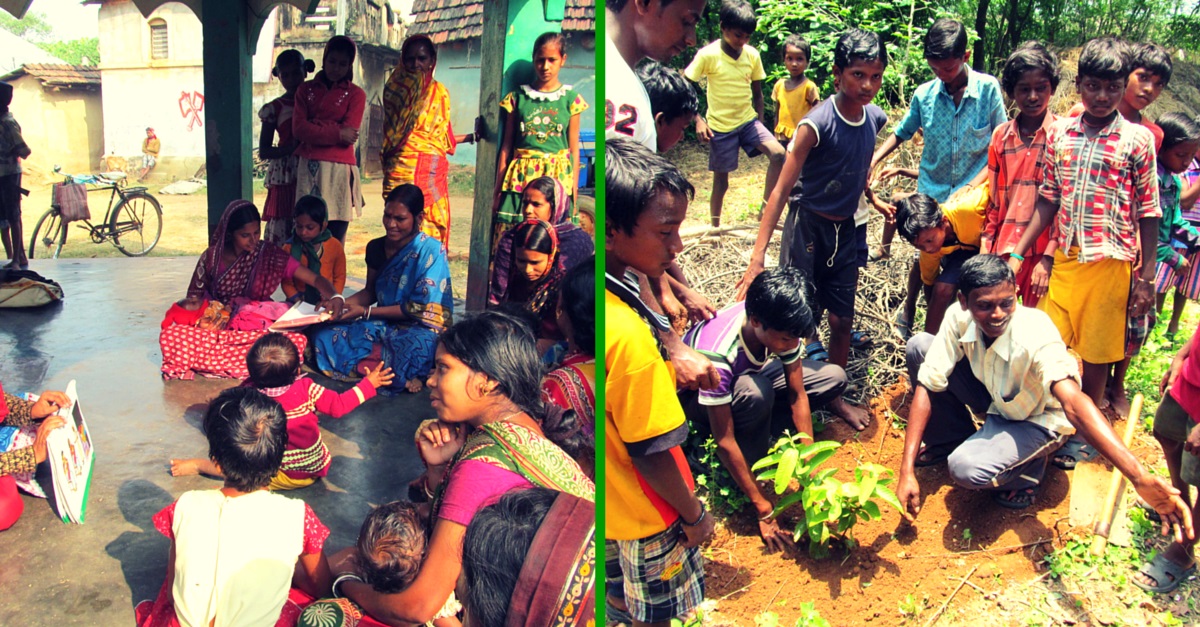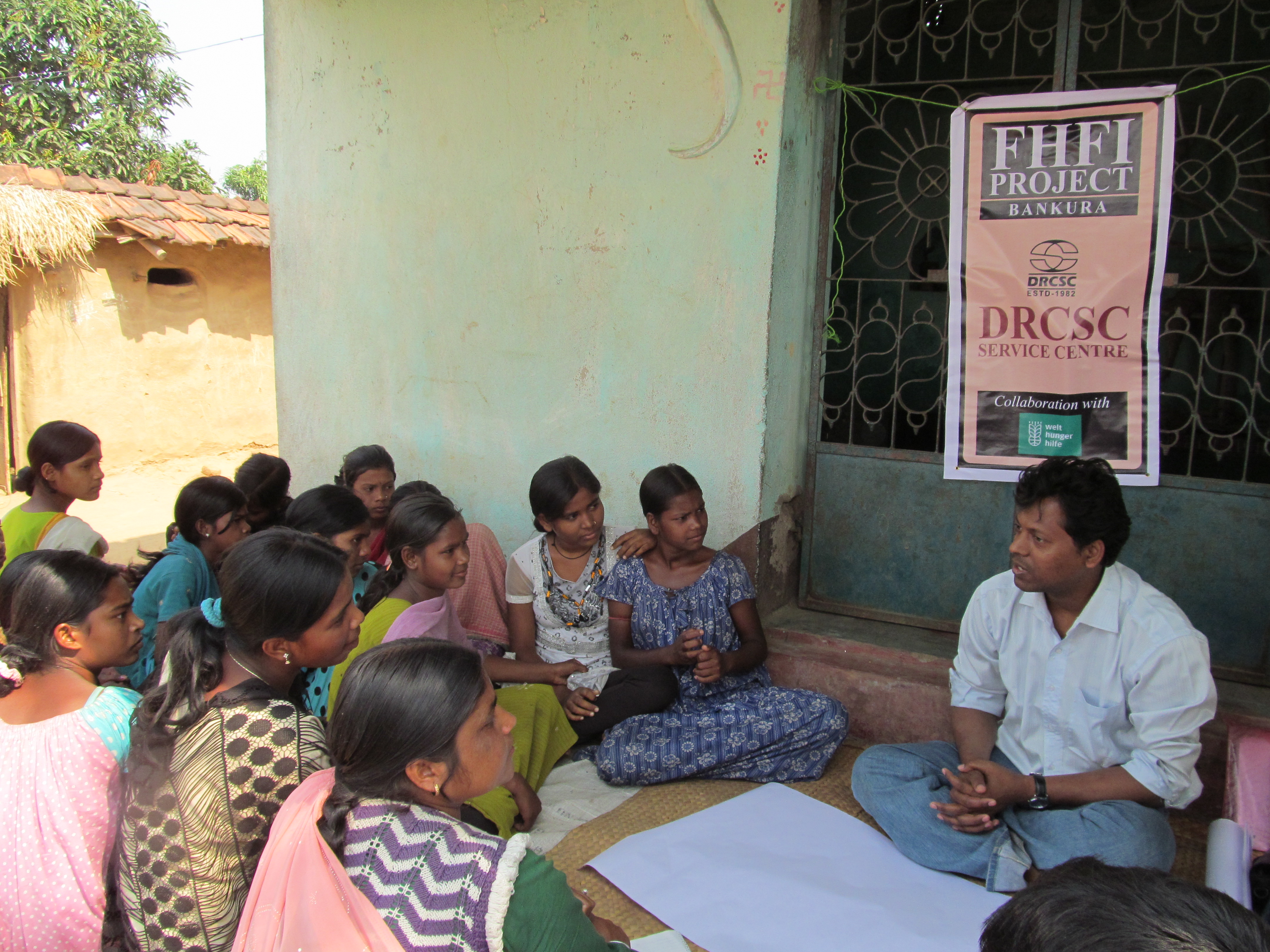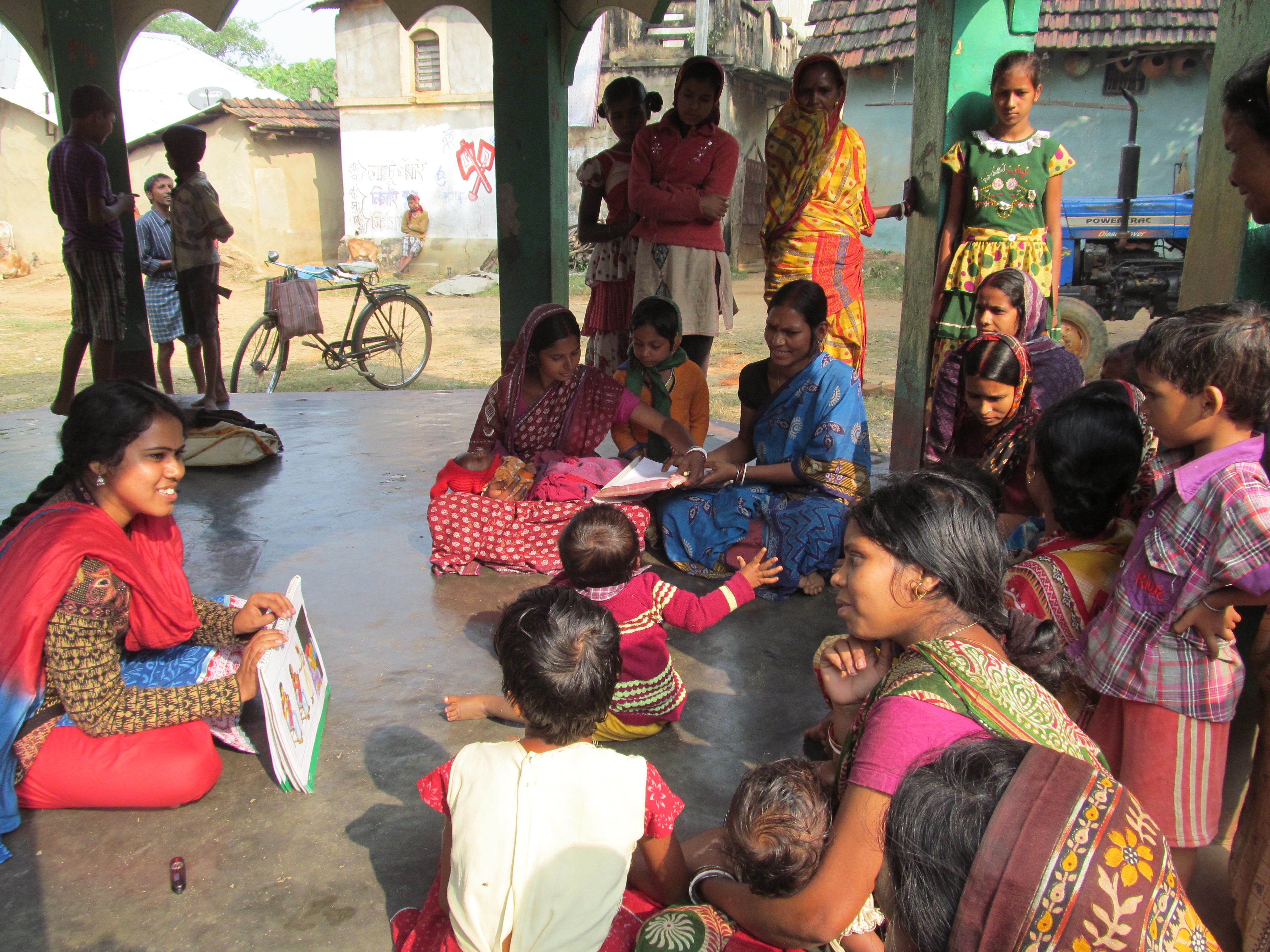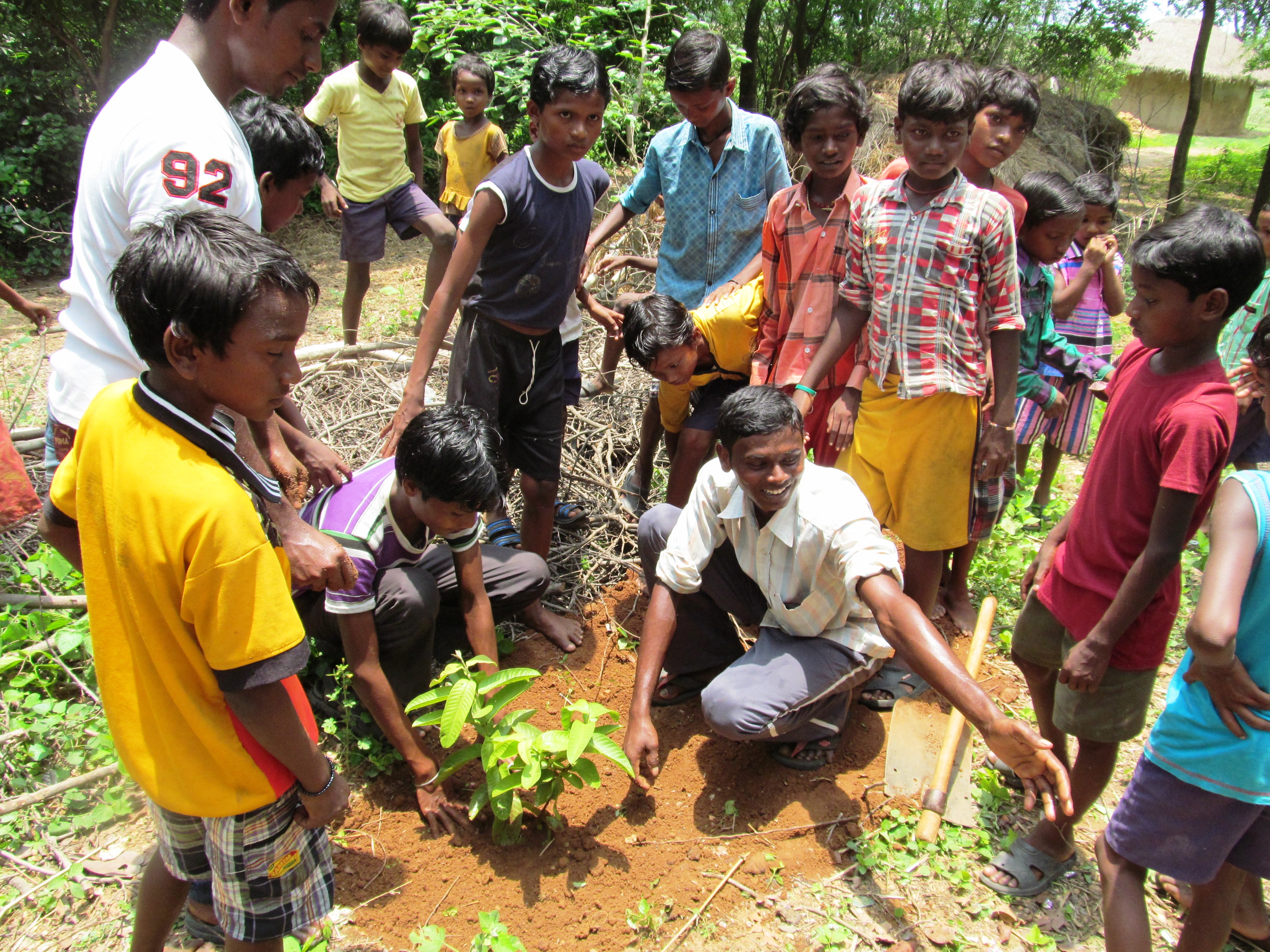How 32 Youth Groups Are Fighting Hunger in Rural West Bengal
Youngsters in 32 villages of Ghoshergram and Jhunjkagram panchayats in Bankura district of West Bengal have formed groups that spread awareness on issues related to health, education and development in amazing ways.

Youngsters in 32 villages of Ghoshergram and Jhunjkagram panchayats in Bankura district of West Bengal have formed groups that spread awareness on issues related to health, education and development in amazing ways.
Kshama Mondal, 19, of Housibad village, which falls under Jhunjka gram panchayat in Chhatna block of Bankura district, West Bengal, enjoys learning new facts related to the food and nutritional needs of her people and then putting this important information to practice. From being an active participant in the nutrition camps that are organised regularly in her village, Kshama has moved on to encouraging others. As a member of the Hosibad Naba Tarun Taruni Dal, a youth group in her village, she is involved in creating awareness on nutrition, health, education and development. Encouraging this process are the activists of the Kolkata-based non-government organisation, Development Research Communication and Services Centre (DRCSC).
Currently, 32 youth groups, comprising 10-15 members, have been set up in Ghosher and Jhunjka gram panchayats, covering 32 villages of Chhatna block. Over 50 per cent of the members are girls like Kshama.

Anirban Banerjee of DRCSC, shares, “We partnered with Welthungerhilfe of Germany to implement the Fight Hunger First Initiative (FHFI) in the rural areas of West Bengal. Food security, income security and education security form the focus of this programme. We realized that to ensure sustainable progress in all three areas, it was imperative to involve the youth, which is why we are reaching out to youngsters between 12 and 22 years.”
He believes that not only will young people be able to mobilise and motivate their family and friends but eventually, as adults, they will also be in a position to sustain the movement to ensure a far reaching impact.
One group has been constituted in each village and they have been trained to function independently.
Suryakanta Das of DRCSC’s Education Team, elaborates, “The groups are involved in creating awareness and monitoring Integrated Child Development Service (ICDS) and mid-day meals. Besides this, they conduct workshops and discussions on nutrition, check on the implementation of the Mahatma Gandhi National Rural Employment Guarantee Act (MGNREGA) and even keep an eye on the workings of the school management committee or the village education committee for the proper implementation of the Right to Education Act.”
Kshama looks forward to being with her group as their joint activities help them form a bond with the community.

“I like explaining the Infant Young and Child Feeding (IYCF) cards to the pregnant women and lactating mothers. It feels nice to be in a position to help and guide them towards better health,” says the teenager.
Her group even conducts workshops where the nutritional value of different leaves, fruits, grains that are available in the area is explained and the local women taught to cook nutritious meals. “For us young girls these are important learnings for life,” she smiles.
Another way in which the youth groups put forth their messages is through street plays.
“We write and stage the street plays on themes like basic hygiene, hand-washing, healthy diet and good food habits. We also emphasise the importance of taking children for timely check-ups to the primary health centre,” elaborates Amita Roy, 15, of the Bortor Ashar Alo group from Bortor village under Ghosher gram panchayat.
Commemorative occasions like World Water Day, World Climate Day, World Health Day, Global Family Day, Earth Day, and so on, are observed in Bortor village with rallies and plays. The youngsters now even act as the bridge between the school and the community, calling for meetings between parents and the school management or village education committees so that the local community’s Right to Education is realised.
However, it is their green fingers that are truly inspiring. Ten groups have created gardens on the premises of 11 primary schools as well as two ICDS centres, all of them managed and maintained by the enthusiastic members themselves.
To get to know the local topography better, the groups draw up a village profile map, clearly demarcating the agricultural land, fallow land, ponds, rivers, forest, and so on.

“While its mostly the boys who participate in this activity, there are some girls too who take part, especially those interested in mapping, topography, resource management,” remarks Sarla Tudu, 16, of Dharam Mandoya group from the tribal village of Kendua under Jhunjka gram panchayat.
At the Siuli Pahari Primary school, a wonderful green patch is being cared for by the Siuli Pahari Nabajiban Dal.
Kakoli Mal, 13, a group member and a secondary school student, elaborates, “We have pitched in to create this school garden, utilising whatever area was available for the purpose. The students help us out by watering the plants or doing the weeding, but the hard work of planting and manuring is done by us. We have planted a variety of vegetables, tubers, leafy vegetables and this produce is used to prepare healthier mid-day meals.”
Those involved in managing the school gardens hold weekly classes on natural resource management and talk to students about their local environment and the ecology as well. The merit of using organic fertilisers, such as vermi-compost or compost and liquid manure, is widely known these days.
“For the youth, participating in such group initiatives has many advantages. It provides practical learnings related to environmental education, which is a part of their syllabus in school. Apart from this it prepares the ground for them to become eligible for the work-for-pay schemes of the panchayat, like doing surveys, once they turn 18. Many of the youth in the 18-22 age group, who are part of the initiative, have become vocal participants in the gram sabha meetings and have the potential to be community leaders. They have realised that knowledge is power,” observes Das.
One successful youth leader who has emerged through this intervention is Laltu Gorai, 21, who has been elected the Upa-Panchayat Pradhan of Benagoria village that falls under the Ghosher gram panchayat. Laltu has been able to better facilitate the implementation of schemes like the MGNREGA because of his broader awareness and community experience thanks to the experience he gained during his work for the local youth group.
There have been numerous multiplier effects of this intervention. Currently, youngsters from within the community are motivated to come forward and work together to bring about positive changes in their lives – be it related to their health, education or employment. The trust factor is high and the bonding strong, which only brightens the chances of this transformation being sustained in the coming years, too.
Like this story? Or have something to share? Write to us: [email protected], or connect with us on Facebook and Twitter (@thebetterindia).
If you found our stories insightful, informative, or even just enjoyable, we invite you to consider making a voluntary payment to support the work we do at The Better India. Your contribution helps us continue producing quality content that educates, inspires, and drives positive change.
Choose one of the payment options below for your contribution-
By paying for the stories you value, you directly contribute to sustaining our efforts focused on making a difference in the world. Together, let’s ensure that impactful stories continue to be told and shared, enriching lives and communities alike.
Thank you for your support. Here are some frequently asked questions you might find helpful to know why you are contributing?


This story made me
-
97
-
121
-
89
-
167











